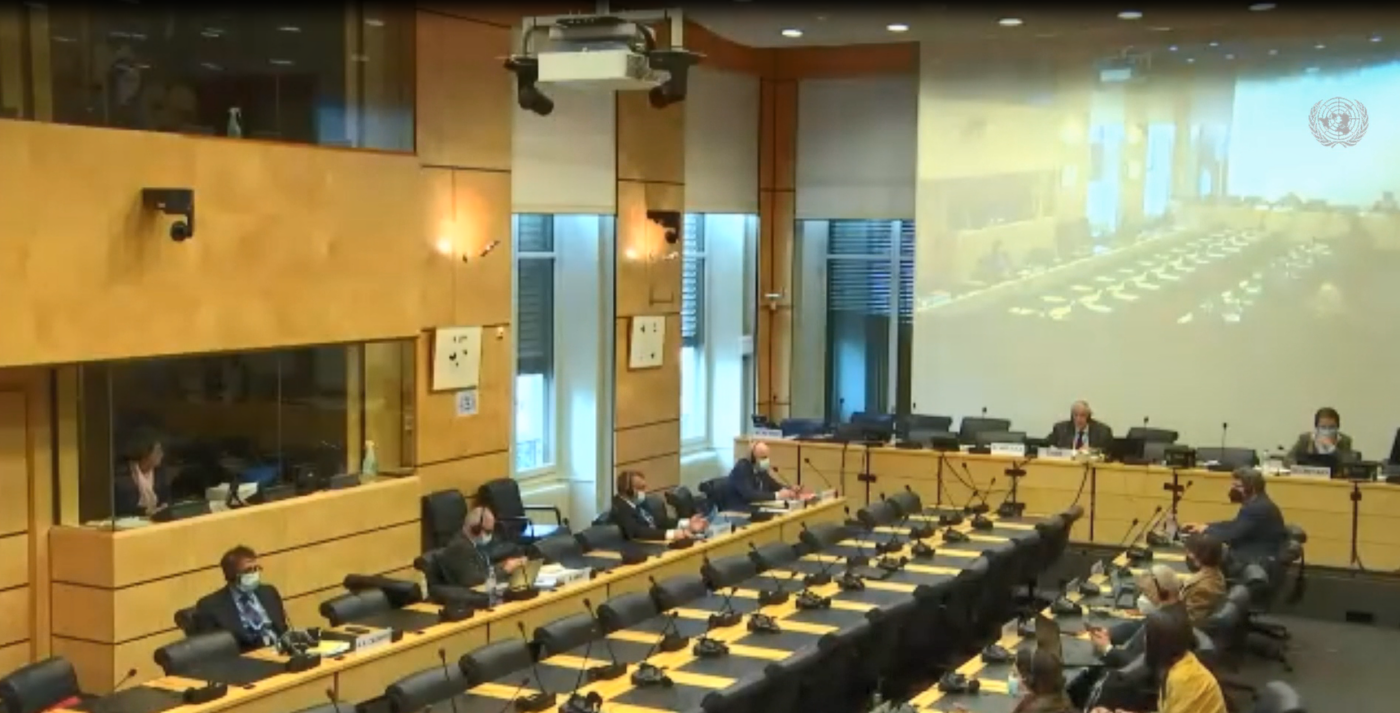In February 2022, the United Nations (UN) Committee on Economic, Social and Cultural Rights (CESCR) conducted a review of Bahrain’s human rights practices as part of its 71st session. The CESCR is the UN body which monitors and oversees implementation of the International Covenant on Economic, Social and Cultural Rights (ICESCR), one of the most important human rights treaties. The ICESCR is the legal framework establishing the right of people to be free from discrimination that is motivated by race, color, sex, language, religion, political or expression of opinion, national or social origin, property, or birth. A state can choose to voluntarily join the ICESCR as Bahrain did in 2007.
18 independent experts in the field of human rights are elected to the committee and carry out monitoring and oversight duties. States must submit a report to the committee every 5 years detailing its progress on the implementation of rights outlined in the ICESCR and also, in implementing recommendations from the committee which address deficiencies in the state’s human rights record. The Committee on Economic, Social and Cultural Rights exists to protect all peoples in the pursuit of liberty and allow for affected individuals and allies to hold their governments accountable.
The review process is designed to determine how well a country is implementing the rights outlined in the ICESCR. A country will submit a report to the committee outlining its work and progress in living up to the human rights values enumerated in the treaty. It is important to understand that the report presented to the CESCR by a state does not always thoroughly, or accurately, present the reality on the ground for people in that country. A report may focus on national legislation which at face value, depicts adherence to the obligations within the treaty but, whether through design flaws in the legislation or weak implementation, are in practice ineffective.
The CESCR publishes its finding and if necessary, subsequent recommendations which a country can pursue, to bring it into closer alignment with the human rights practices it has agreed to in the treaty. It may also make a specific request to a state asking for more information prior to the next review.
Reports, such as those presented to the committee from the Kingdom of Bahrain, present a narrative which is contradictory to the experiences of people living in the kingdom, as well as contradictory to the findings from many human rights organizations. At this most recent review, delegates from the kingdom presented legislation it has passed as evidence of its commitment to the treaty, to human rights in general, and as a means of proof that abuses are not occurring. However, though the amount of legislation passed by Bahrain may be impressive, the volume of its measures have not stopped the government’s attacks on human rights and its defenders.
Committee members asked the Bahraini delegation for specific answers about government attacks on human rights defenders and the health status of imprisoned defenders. Multiple human rights organizations have documented evidence of human rights violations being perpetrated by the government against its own people for speaking critically of the monarchy. The decades-long state policy and actions of eliminating free speech, assembly, and association rights as well as suffocating a civil society space that is independent of the government and its control, were the focus of this and past CESCR reviews.
In its reports to the committee and in its responses to specific questions of committee members, Bahrain expresses a beautifully worded belief in the principles of the UN and its human rights treaties. Sadly, these public expressions of support by the government for the rights of self-determination, political freedoms, or civil society have not been demonstrated in its actions. What has been clear, and was evident to any person watching this committee meeting, is that the government has prevented the pursuit of liberty in the country and removed domestic mechanisms that would allow its people to hold their government accountable. Responses from Bahraini delegates to questions from CESCR members, demonstrates that government oversight bodies in Bahrain lack the objectivity necessary to effectively function.
The question that an observer to this situation in Bahrain must answer is ‘Is the Bahrain government unwilling or unable to correct its human rights abuses?’ The delegation’s report to the CESCR did not contain evidence that the ongoing discrimination against vulnerable people or attacks and repression of human rights defenders has stopped. A delegate from the Ministry of Interior denied the existence of any abuses of human rights defenders and saying he “cannot imagine situations” where such violations would occur. This is only a small example of Bahrain avoiding the documented evidence of abuses committed against Dr. Abduljalil Al-Singace, Abdulhadi Al-Khawaja and nearly 1400 other political prisoners currently inside Bahrain’s prisons.
Questions from CESCR committee members during the public meeting requesting an answer to reports of severe violations of the rights of human rights defenders Dr. Abduljalil Al-Singace and Abdulhadi Al-Khawaja have gone unanswered.
Bahrain’s reports to the CESCR in recent years have pointed to specific language in its constitution and domestic laws which, on paper, would suggest that the current Bahraini government is a committed believer in the rights of its people to liberty and the pursuit of political, cultural, and economic freedoms. When expressing support for self-determination while simultaneously suppressing it, is the monarchy in Bahrain saying it believes in its own right to self-determination but not for that of the majority of the country’s people?
The delegation and the country did receive a public invitation from the committee to work with the CESCR to correct very specific violations of human rights and discrimination committed by government against its own people. When a country claims to respect human rights while repeatedly silencing free speech, civil society, and imprisoning its critics, that country is disrespecting human rights and the international community. Words must be followed by genuine action.





